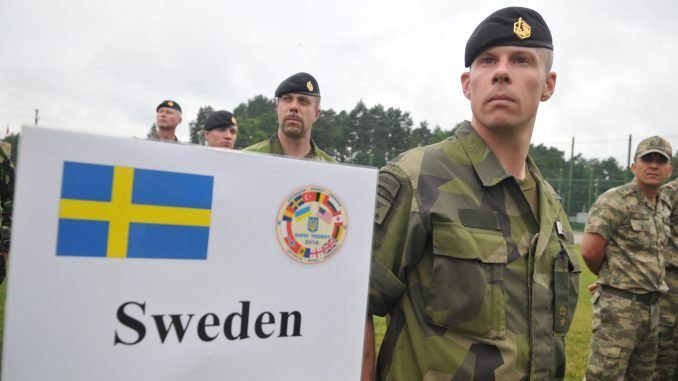
Changes and breakthroughs that were barely imaginable just a few months ago are on the increase. But the direction in which global processes are moving is still shrouded in fog. This is true both of the war in Ukraine and of Western strategic thinking. lrytas.lt wrote in its editorial Laiko ženklai section.
These are increasingly being debated in the international community of politicians and experts. One of its most prominent meetings took place a week ago in Tallinn.
An annual geopolitical conference named after Meri, the country’s first president after the restoration of independence, was held there.
One of the hottest topics discussed at the conference was the accession of Finland and Sweden to NATO.
The fact that the Baltic Sea is becoming an internal NATO sea and that the Baltic States are backed by some of the best armies in Europe, which will be obliged to defend them in accordance with the Alliance’s commitments, is the best news for Lithuania.
Moscow has no serious response to this, at least in the short term, other than an increase in arms along the borders, an influx of illegal migrants into Finland or other attacks.
In any case, the Russian military forces on the western borders are badly bloodied by the war in Ukraine and will need at least a few years to recover.
This is partly confirmed by statements from the highest officials of the Kremlin regime.
After initially threatening the end of the world, they have now announced that Russia will not, in principle, react in any serious way to Finland’s and Sweden’s membership of NATO, as they do not consider it to be a direct threat to them.
But the most important thing is the turning point in the consciousness of Swedish and Finnish societies and political elites. Even before Russia’s open invasion of Ukraine, their membership of NATO was already a matter of debate, but the likelihood that they would both abandon the long-standing policy of neutrality that has formed the basis of their identity seemed quite remote. Now, however, both public attitudes and national actions have changed at lightning speed.
These changes show that both the public and the politicians in these countries have decided that Russia is no longer a predictable state with which to get along and poses a long-term existential threat. It is, therefore, better to prepare for the worst and take the initiative.
But can such psychological and political changes be seen throughout the West?
At the conference I mentioned, this key issue was discussed in much the same way as it is in the West – that it is still at a crossroads in strategic thinking.
Of course, more and more ordinary citizens and politicians in the main Western countries are beginning to think in the way that the Baltic countries, for example, have been urging for years – that the Moscow regime only understands the language of force and that is the only way it can be influenced.
This means that military support for Ukraine and ever tougher sanctions against Moscow are the only way to go. And it must go on until the aggressor is so exhausted that it has to leave Ukraine, is defeated militarily and, in Russia itself, there is political erosion and, perhaps, even regime collapse.
Moreover, the West must, as soon as possible, abandon any economic ties with Russia that feed its regime.
Of course, even the proponents of this approach admit that this is an extremely long and difficult road. Especially since the confrontation between the Russian regime and the West is inevitably becoming part of the democracies and autocracies around the world, almost all of which are based around China.
The Kremlin regime, which still has considerable domestic resources, may therefore also gain a wide rear. Moreover, despite the signs of friction at the top in Moscow, and the dissatisfaction of military circles with the political leadership of the regime based on the special services, mobilising against a common danger – the West – is an important unifying factor.
And it remains impossible to see any signs of a revolution from below in Russian society itself, especially since the end of the war in Ukraine is still unpredictable.
High-ranking officials from the US Department of Defence, who took part in the discussions, said that after the fighting in the Donbas, they would try to occupy the entire southern coast of Ukraine and Odesa. Russia’s plans also include bombing and possibly attacking other cities, even in the West of Ukraine. The confrontation will therefore be a long, fierce and damaging one for both sides, and there is simply no other way.
But the opposite camp of geopolitical thinking is not willing to give up its position either. The train must be stopped as soon as possible and by any means necessary because the further it goes, the more likely it is to end in a global catastrophe.
On the other hand, in France, Germany and Italy, for example, there is a very strong view that Ukraine and its most militant supporters should at least make some concessions to Russia and give it something so that the Kremlin regime is not finally cornered and is able to save face supposedly.
Then, allegedly, it would be possible to further de-escalate the situation by lifting at least some of the sanctions against Russia.
This is also reportedly the view of French President Macron, who in recent days has even had to justify trying to push Kyiv in this direction.
It remains to be seen whether this camp, which is calling for Ukraine to come to the table for a new “ceasefire” with Russia, which is encroaching on more and more territory, will gain ground. What is certain is that such voices will become louder the longer the war in Ukraine and the global geopolitical confrontation continue.


Be the first to comment